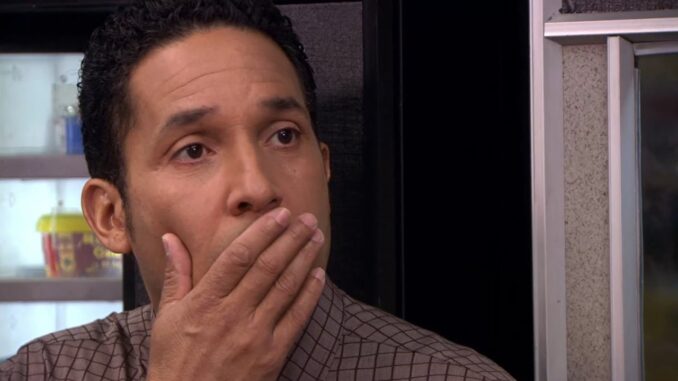
You Won't Believe How Similar These Two Office Scenes Are: A Study in Secondhand Embarrassment and Uncomfortable Truths
The Office, a show celebrated for its cringe comedy and relatable characters, thrives on moments of profound awkwardness. While many fans point to Michael Scott's infamous blunders as the pinnacle of discomfort, a closer look reveals that the show's brilliance often lies in recurring thematic motifs, subtly echoing throughout different storylines. Two scenes, seemingly disparate yet strikingly similar, illustrate this point beautifully: Michael's disastrous proposal to Carol in "Christmas Wishes" (Season 6) and David Wallace's haunting and hilarious descent into despair in "Garage Sale" (Season 7). Both scenes, while separated by time and context, share a core of secondhand embarrassment fueled by uncomfortable truths about loneliness, desperation, and the struggle to maintain dignity in the face of personal failures.
In "Christmas Wishes," Michael, fueled by holiday cheer and a deep-seated need for validation, decides to propose to his girlfriend, Carol, at the office Christmas party. What transpires is a masterclass in cringeworthy miscalculation. He's clearly projecting an idealized version of their relationship onto Carol, oblivious to her lukewarm feelings. His attempts to create a romantic atmosphere are met with polite but unenthusiastic responses. The proposal itself is a trainwreck, a hurried, underwhelming offering presented without genuine connection. The audience squirms, witnessing the inevitable rejection that hangs heavy in the air. The true horror, however, lies in the revelation that Michael is not simply misguided, but desperately lonely. He craves the stability and connection Carol represents, clinging to the illusion of romance to mask the void in his own life. The forced merriment of the Christmas party only exacerbates his vulnerability, exposing his neediness for all to see.
Contrast this with "Garage Sale," where David Wallace, recently ousted from Dunder Mifflin, is forced to sell his possessions in a desperate attempt to regain financial footing and, perhaps more importantly, a semblance of control over his life. The scene is steeped in an unsettling mixture of pity and morbid curiosity. David, usually a figure of authority and composed sophistication, is reduced to hawking broken gadgets and outdated furniture, his desperation palpable. He's visibly defeated, his attempts at forced cheerfulness failing to mask the bitterness and humiliation simmering beneath the surface. His performance of "Suck It" is both hilarious and heartbreaking, a pathetic plea for relevance and recognition in a world that has seemingly moved on without him.
The similarities between these two scenes, though separated by a season, are striking. Both Michael and David are figures of authority stripped bare, their vulnerabilities exposed. They are both desperately trying to regain control over their lives, clinging to fleeting moments of perceived happiness or success. They both suffer from a lack of self-awareness, projecting their desires onto situations and people who are clearly not aligned with their expectations. The humor in both scenes stems from the sheer awkwardness of witnessing their struggles, but the underlying tragedy resonates with a deeper truth about the human condition.
Furthermore, both scenes highlight the isolating nature of failure. Michael's rejection at the Christmas party emphasizes his inability to form genuine connections, leaving him feeling more alone than ever in a room full of people. Similarly, David Wallace's garage sale underscores his isolation from the corporate world he once dominated, forcing him to confront the stark reality of his changed circumstances alone.
Ultimately, the brilliance of The Office lies not just in its comedic timing and quirky characters, but in its ability to expose the raw, uncomfortable truths about the human experience. The parallels between Michael's failed proposal and David Wallace's garage sale offer a powerful reminder that beneath the veneer of success and competence, lies a vulnerability that is universally relatable. We cringe not just at their actions, but at the reflection of our own fears and insecurities mirrored back at us. These scenes, though seemingly disparate, serve as a testament to the show's enduring power: a power rooted in its ability to make us laugh, squirm, and ultimately, confront the uncomfortable realities of being human. You won't believe how similar they are, and perhaps, how similar they are to us.